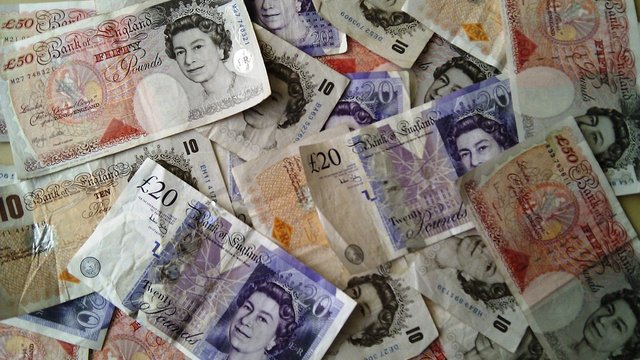On Air Now
Capital Breakfast with Fat Brestovci & Amy Meisak 6am - 10am
11 December 2017, 07:12

A majority of Scottish small business owners oppose an increase in income tax, a new survey suggests.
The Federation of Small Businesses (FSB) polled 315 businesses in Scotland in November to gauge support for tax hikes north of the border.
The budget due to be unveiled by Finance Secretary Derek Mackay on Thursday is expected to include tax rises, after Nicola Sturgeon said the time was right to consider "modest" increases to fund public services.
But almost three fifths (58.3%) of those polled by FSB said they wanted income tax rates to stay the same, with 20.7% backing a decrease and 21.0% supporting a rise.
Around two thirds (65%) said an increase in income tax would be detrimental to the economy, compared to 18% who thought it would be a boost and 17% who suggested it would have no impact.
FSB Scottish policy convenor Andy Willox said: "A clear majority of those that run their own business in Scotland don't want the Finance Secretary to increase income tax rates.
"Those asked warned of the impact on the wider economy, and little wonder with pressure on household incomes and uncertainties about the impact of Brexit."
The First Minister has set out four options indicating that those earning more than £31,000 could be in line to pay more.
The government's four alternative approaches include having anything up to six tax bands, while three out of the four feature a 50p additional rate and incremental changes to the basic and higher rates.
The FSB survey found that just under half of business owners preferred the proposal with the largest number of bands and rates, around a third wanted rates hiked for high earners and a 10th preferred a rise for mid and high earners.
Just 7% preferred the option where a small number of additional rates were added.
Of those surveyed 64.8% were basic rate taxpayers earning between £11,501 and £43,000, around a fifth (22.5%) earned between £43,001 to £150,000 and 1.6% fell into the additional rate bracket, earning more than £150,000 per year.
Mr Willox added: "This data scotches the myth that business owners are all high earners. Further, when forced to choose between Ministers' palette of tax options, the largest share of business owners chose what could be regarded as the more progressive option."
The minority SNP government will need to win the support of either the Liberal Democrats or the Greens to get its budget through the Scottish Parliament.
Greens co-convener Patrick Harvie said it was "clear that there's a growing consensus for a more progressive system of income tax".
He said: "Greens have led on this issue, consistently pushing the idea of a greater range of rates and bands and protection for those on lower incomes."
Mr Mackay has sought to reassure businesses by saying economic growth and innovation will be at the heart of the budget.
A government spokeswoman said: "Our income tax discussion paper outlined four key tests that we feel any change in income tax must meet. One of those was that, when combined with our spending decisions, any change in tax policy should support the economy.
"Following this careful and considered discussion, we will publish a balanced package of tax and spending proposals as part of the draft budget on 14 December."
Scottish Conservative finance spokesman Murdo Fraser said: "There is now a serious consensus within Scotland's business community that the SNP should not increase income tax.
"The nationalists must listen to this, or else workers will be hit in the pocket and the broader economy damaged as a result."